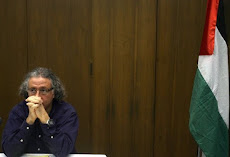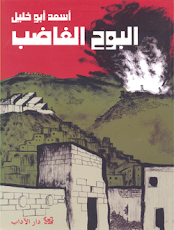"Saudi Arabia, the only modern country named for its ruling dynasty, is an absolute monarchy that is anti-democratic, illiberal and intolerant. Already by March 11 of this year, according to Amnesty International, the Kingdom had executed forty-four people, many of them foreign nationals, often by beheading, and frequently for relatively minor drug-related charges. Sometimes decapitated bodies were hung, crucifixion-style, over busy intersections. The press is heavily censored, peaceful protests are banned and rights advocates face draconian sentences. A liberal blogger, Raif Badawi, was sentenced to public flogging and remains in prison despite an international outcry. Women have the status of minors, unable to drive, travel or otherwise function as adults without the supervision of their fathers, husbands or sons. As elsewhere in the Gulf, menial jobs are done by migrant workers, who in many cases are little more than indentured laborers...Mindful of the arms-for-oil bargain, Western powers overlook deplorable human rights violations for the sake of a more than seventy-year-old petro-security complex. In January President Obama led a large, high-powered bipartisan delegation of thirty American politicians to Riyadh to express condolences over the passing of the late King Abdullah and swear allegiance to the new King Salman. The president and other members of the delegation—which included former Secretaries of State James Baker and Condoleezza Rice, Senators John McCain and Mark Warner, Secretary of State John Kerry, National Security Adviser Susan Rice and CIA director John Brennan—had all visited King Abdullah and members of his government many times before. Other world leaders also paid their respects.
It is customary for the United States, other North Atlantic powers and, through them, the United Nations Security Council to defer to Saudi concerns in Yemen. American drone assassinations, in particular, have been rationalized in terms of ensuring Saudi security. It follows that the United States is augmenting the current Saudi-led campaign with logistical and intelligence support, including live surveillance feeds from unmanned drones.
Saudi Arabia has meddled incessantly in Yemeni politics since at least the 1960s. All the Gulf monarchies opposed the revolutionary movement then against British colonialism and the sultans it supported in what was then South Yemen. The Saudis financially backed restoration of the Zaydi imam, who had been overthrown in 1962 by republican officers backed by forces from Gamal Abdel Nasser’s Egypt. When revolutionaries came to power in what became the People’s Democratic Republic in the South and secular republican officers prevailed in the North, the Saudi government and various princes paid stipends to friendly clients in both parts of Yemen as a way of influencing domestic politics. The radically anti-Socialist Islamist party known as Islah was founded in North Yemen with Saudi encouragement by two of the country’s most prominent conservatives, both known for close ties with the Saudi Kingdom: the fanatical Salafi preacher Abd al-Majid al-Zindani and the late sheikh of the Hashid tribal confederation and long-time Speaker of Parliament, Abdullah bin Hussein al-Ahmar.
Saudi Arabia opposed Yemeni unification in 1990, cheered on Southern secessionists during the 1994 civil war and funded Salafi mosques and schools throughout the country. In fact, it was the ostentation of a large Saudi-funded Salafi institute in the town of Dammaj in Saada province that sparked the local Zaydi revivalist movement initially called the “Believing Youth,” but now known as Ansar Allah, or simply the Houthis. The 2004 arrest by then-President Ali Abdullah Saleh’s men of the movement’s founder, Hussein Badr al-Din al-Houthi, and hundreds of his followers who were protesting in Sana sparked the first of six wars between the Saleh regime and Houthis in their Saada homeland. In 2009, Saudi warplanes targeted Houthi strongholds; according to Human Rights Watch, there is “credible evidence” the Saudis used cluster bombs."
It is customary for the United States, other North Atlantic powers and, through them, the United Nations Security Council to defer to Saudi concerns in Yemen. American drone assassinations, in particular, have been rationalized in terms of ensuring Saudi security. It follows that the United States is augmenting the current Saudi-led campaign with logistical and intelligence support, including live surveillance feeds from unmanned drones.
Saudi Arabia has meddled incessantly in Yemeni politics since at least the 1960s. All the Gulf monarchies opposed the revolutionary movement then against British colonialism and the sultans it supported in what was then South Yemen. The Saudis financially backed restoration of the Zaydi imam, who had been overthrown in 1962 by republican officers backed by forces from Gamal Abdel Nasser’s Egypt. When revolutionaries came to power in what became the People’s Democratic Republic in the South and secular republican officers prevailed in the North, the Saudi government and various princes paid stipends to friendly clients in both parts of Yemen as a way of influencing domestic politics. The radically anti-Socialist Islamist party known as Islah was founded in North Yemen with Saudi encouragement by two of the country’s most prominent conservatives, both known for close ties with the Saudi Kingdom: the fanatical Salafi preacher Abd al-Majid al-Zindani and the late sheikh of the Hashid tribal confederation and long-time Speaker of Parliament, Abdullah bin Hussein al-Ahmar.
Saudi Arabia opposed Yemeni unification in 1990, cheered on Southern secessionists during the 1994 civil war and funded Salafi mosques and schools throughout the country. In fact, it was the ostentation of a large Saudi-funded Salafi institute in the town of Dammaj in Saada province that sparked the local Zaydi revivalist movement initially called the “Believing Youth,” but now known as Ansar Allah, or simply the Houthis. The 2004 arrest by then-President Ali Abdullah Saleh’s men of the movement’s founder, Hussein Badr al-Din al-Houthi, and hundreds of his followers who were protesting in Sana sparked the first of six wars between the Saleh regime and Houthis in their Saada homeland. In 2009, Saudi warplanes targeted Houthi strongholds; according to Human Rights Watch, there is “credible evidence” the Saudis used cluster bombs."








